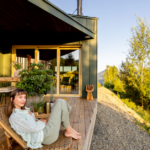The Essence of Christian Wellness Retreats
Christian wellness retreats in the Rocky Mountains offer a unique blend of spiritual growth and physical well-being. These retreats integrate traditional Christian practices with modern wellness concepts in a stunning natural setting.
The grandeur of the Rocky Mountains serves as a constant reminder of God’s creation, inspiring awe and facilitating a deeper connection with the divine.
As someone who has experienced these retreats firsthand, I can attest to their transformative power. They go beyond typical church services or secular wellness programs by nourishing the body, mind, and spirit in a holistic manner.
Integrating Faith and Wellness
Christian wellness retreats incorporate contemporary wellness practices into a faith-based framework. This approach allows participants to care for their physical and mental health while deepening their spiritual lives.
Meditation and Prayer
Meditation is a common practice at these retreats. Christian meditation often involves contemplating scripture or engaging in guided prayer.
Instead of emptying the mind, participants focus on filling it with God’s word and presence.
Holy Yoga
Many retreats offer yoga classes adapted to include Christian themes and prayers. This practice, often called “Holy Yoga,” allows participants to honor God through movement and breath.
Outdoor Worship
The natural setting plays a crucial role in the spiritual-wellness connection. Many retreats incorporate outdoor worship services, allowing participants to praise God amidst His creation.
These experiences can be profoundly moving and help foster a deeper appreciation for the natural world.
Adventure and Faith
One of the most exciting aspects of these retreats is how they integrate outdoor adventures with spiritual growth. Activities like rock climbing, hiking, and white-water rafting become powerful metaphors for spiritual truths.
Rock Climbing: A Lesson in Trust
Rock climbing challenges participants to trust their equipment, their belayers, and ultimately, God. As climbers ascend, they learn to rely on something beyond themselves, mirroring the trust we’re called to have in our faith journey.
Hiking: A Spiritual Pilgrimage
Hiking in the Rockies becomes more than just exercise – it changes into a spiritual pilgrimage. The physical exertion, breathtaking views, and quiet moments of reflection along the trail create opportunities for deep spiritual connection and personal growth.
White-Water Rafting: Navigating Life’s Challenges
White-water rafting teaches about adapting to life’s turbulent waters with God’s guidance. Participants learn to work together, trust their guide, and navigate obstacles – all skills that translate to spiritual life.
These activities challenge participants physically and spiritually. They push people out of their comfort zones, encouraging reliance on God and fostering a sense of community among retreat-goers.
Wellness Practices with a Christian Perspective
Christian wellness retreats in the Rockies often incorporate a wide range of wellness practices, but with a distinctly faith-based approach.
Nutrition and Fasting
Many retreats offer plant-based or whole food diets, drawing parallels to Biblical eating habits. Participants might be guided to notice God’s handiwork in nature or to be mindful of His presence in every moment.
This approach helps integrate spiritual awareness into daily life.
Physical Fitness
Exercise programs often include elements of worship, such as praise music during workouts or prayer walks. The goal is to honor God through caring for physical health.
This perspective helps participants view exercise not just as a means to physical fitness, but as an act of worship.
Rest and Sabbath
In our hyper-connected world, many retreats emphasize the importance of rest and digital detox, tying this to the Biblical concept of Sabbath. Participants learn to embrace periods of rest and disconnection as essential for spiritual and physical well-being.
Challenges and Controversies
While Christian wellness retreats offer many benefits, they also face certain challenges and controversies.
Integration of Eastern Practices
One major issue is the integration of practices like yoga and meditation, which some Christians view as incompatible with their faith because of roots in Eastern religions. Retreat organizers often need to carefully explain how these practices have been adapted to align with Christian beliefs.
Balancing Traditional and Progressive Concepts
Another challenge is balancing traditional Christian teachings with more progressive wellness concepts. For instance, reconciling body positivity messages with Biblical teachings on modesty needs thoughtful navigation.
Environmental Stewardship
As stewards of God’s creation, these retreats must confirm they’re not negatively impacting the delicate mountain ecosystems. This involves careful planning and sustainable practices in all aspects of the retreat.
Implementing Christian Wellness Practices at Home
While the Rocky Mountain setting is undoubtedly special, many of the practices from these retreats can be implemented at home. Here’s a guide to creating your own mini Christian wellness retreat:
- Set aside a full day for your retreat.
- Start with a sunrise prayer or meditation session.
- Engage in a physical activity that connects you with nature, like a hike or gardening.
- Practice mindful eating with a healthy, plant-based meal.
- Spend time in Bible study or Christian literature.
- Try a session of Holy Yoga or Christian meditation.
- End the day with a gratitude journaling session and evening prayers.
Avoiding Pitfalls
When engaging in Christian wellness practices, it’s important to be aware of potential pitfalls:
Maintaining Spiritual Focus
Wellness practices should enhance, not substitute, your relationship with God. Keep your faith at the center of all wellness activities.
Understanding Adapted Practices
Be cautious about adopting practices without understanding their origins and how they’ve been adapted for Christian use. Research and ask questions to confirm alignment with your beliefs.
Avoiding Legalism
Remember that Christian wellness involves honoring God, not achieving perfection. Avoid becoming legalistic about wellness practices.
Balancing Faith and Medicine
Don’t ignore medical advice in favor of faith-based wellness practices. The two can and should coexist harmoniously.
Adapting to Different Scenarios
Christian wellness retreats in the Rockies cater to a wide range of people and needs.
Couples Retreats
Some retreats focus on couples, helping to strengthen marriages through shared spiritual and wellness experiences. These may include relationship workshops, couple’s devotionals, and activities designed to foster communication and intimacy.
Leadership Retreats
Others target church leaders, providing a space for rest and renewal to combat burnout. These retreats often include sessions on self-care, stress management, and maintaining spiritual vitality in leadership roles.
Demographic-Specific Retreats
There are also retreats designed for specific demographics, such as youth groups or senior citizens. These offer activities and teachings tailored to the needs and abilities of the particular group.
Building on the Basics
Participating in a Christian wellness retreat or implementing these practices at home can be a transformative experience. It builds on the basics of faith, taking believers beyond Sunday services and daily devotionals into a more holistic, integrated spiritual life.
These practices can lead to a deeper understanding of how faith intersects with all aspects of life – physical health, mental well-being, relationships, and even your relationship with the natural world.
Exercises to Try
Nature Meditation
Find a quiet outdoor spot. Read a Psalm about nature, then spend 10 minutes silently observing God’s creation around you.
Notice the details of plants, the movement of animals, the feel of the breeze.
Reflect on how these elements reflect God’s character.
Holy Yoga
Try a basic yoga routine, but replace traditional mantras with Christian affirmations or short prayers. For example, during a sun salutation, you might praise God for the new day.
In a warrior pose, you could reflect on standing firm in faith.
Mindful Eating
For one meal, eat in silence, focusing on gratitude for each bite and the journey it took to reach your plate. Consider the farmers, transporters, and cooks involved. Thank God for His provision and the nourishment the food provides.
Prayer Hike
Go for a hike, stopping at regular intervals to pray about different aspects of your life or the world. You might pray for family at one stop, your community at another, and global issues at a third.
Let the changing scenery inspire different prayer focuses.
Sabbath Practice
Designate a 24-hour period as a “digital Sabbath,” turning off all devices to focus on rest, worship, and relationships. Use this time for in-person connections, reading scripture, and enjoying God’s creation without digital distractions.
The Impact of Christian Wellness Retreats
Christian wellness retreats in the Rocky Mountains can have a profound impact on participants’ lives. Many report feeling renewed, both spiritually and physically, after attending these retreats.
Spiritual Growth
Participants often experience significant spiritual growth during these retreats. The combination of focused time in prayer, scripture study, and worship, along with the awe-inspiring natural setting, can lead to powerful encounters with God.
Many report feeling a deeper connection to their faith and a renewed sense of purpose in their spiritual lives.
Physical Rejuvenation
The emphasis on physical wellness, including healthy eating, exercise, and rest, often leads to improved physical health. Participants may return home feeling more energized, with new habits that contribute to ongoing physical well-being.
Mental and Emotional Healing
The retreat environment, free from daily stressors and distractions, provides an opportunity for mental and emotional healing. Many find that the combination of spiritual practices, wellness activities, and the peaceful mountain setting helps reduce anxiety, reduce depression, and promote overall mental health.
Relationship Building
These retreats often foster strong bonds between participants. Shared experiences, group activities, and open discussions create an environment where deep, meaningful relationships can form.
Many attendees report leaving with new friendships that continue long after the retreat ends.
Lifestyle Changes
The practices and principles learned during these retreats often inspire lasting lifestyle changes. Participants may adopt new habits related to diet, exercise, prayer, or time management that continue to benefit them long after they return home.
The Role of Nature in Christian Wellness
The Rocky Mountain setting plays a crucial role in the effectiveness of these retreats. The natural environment serves many purposes in promoting wellness and spiritual growth.
God’s Creation as a Classroom
The mountains, forests, and wildlife serve as living illustrations of Biblical truths. Retreat leaders often use natural phenomena to teach spiritual lessons, making abstract concepts more tangible and memorable.
Physical Challenge and Growth
The mountain environment provides natural challenges that push participants physically. Whether it’s hiking at high altitudes or navigating rocky terrain, these challenges promote physical growth and can serve as metaphors for overcoming spiritual obstacles.
Stress Reduction
Research has shown that time spent in nature can significantly reduce stress levels. The peaceful mountain setting, away from the noise and pace of everyday life, allows participants to relax and be more receptive to spiritual experiences.
Appreciation for Creation
Immersion in the beauty of the Rockies often leads to a deeper appreciation for God’s creation. This can inspire a greater sense of environmental stewardship and a want to protect and preserve natural spaces.
The Future of Christian Wellness Retreats
As interest in holistic health and wellness continues to grow, Christian wellness retreats are likely to evolve and expand.
Integration of Technology
While many retreats emphasize disconnecting from technology, some are beginning to incorporate tech in useful ways. This might include apps for guided prayer or meditation, virtual reality experiences for Biblical storytelling, or wearable devices for tracking physical activity and sleep patterns.
Expansion to New Locations
While the Rocky Mountains provide an ideal setting, the concept of Christian wellness retreats is expanding to other natural environments. Coastal retreats, desert experiences, and forest immersions are becoming more common, each offering unique opportunities for spiritual growth and wellness.
Specialized Programs
As the field grows, more specialized programs are emerging. These might include retreats focused on specific health issues, such as stress management or addiction recovery, all approached from a Christian perspective.
Ongoing Support
Many retreat organizers are developing ways to provide ongoing support to participants after they return home. This might include online communities, follow-up coaching sessions, or resources for continuing wellness practices in daily life.
Preparing for a Christian Wellness Retreat
If you’re considering attending a Christian wellness retreat in the Rocky Mountains, here are some tips to help you prepare:
Physical Preparation
Many retreat activities involve physical exertion at high altitudes. Start a regular exercise routine several weeks before your retreat to build stamina.
If you have any health concerns, talk to your doctor before attending.
Spiritual Preparation
Begin to cultivate a spirit of openness and expectancy. Spend time in prayer, asking God to prepare your heart for the experience.
Consider fasting or setting aside extra time for Bible study in the weeks leading up to the retreat.
Packing Essentials
In addition to comfortable clothing and sturdy shoes, bring a journal, Bible, and any personal devotional materials you use regularly. Don’t forget essentials like sunscreen, a water bottle, and any necessary medications.
Mental Preparation
Be prepared to step out of your comfort zone. Many retreat activities may be new or challenging.
Approach the experience with an open mind and a willingness to try new things.
Disconnecting
Many retreats encourage participants to disconnect from technology. Consider informing friends and family that you’ll have limited availability, and set up suitable out-of-office messages for work.
The Role of Community in Christian Wellness
While person practices are important, the community aspect of Christian wellness retreats is crucial.
Shared Experiences
Participating in challenging activities together, whether it’s a strenuous hike or an emotional worship service, creates strong bonds between retreat participants.
Accountability
The retreat community provides built-in accountability for wellness practices. Participants can encourage each other to stick to healthy habits and spiritual disciplines.
Support and Encouragement
The retreat environment often fosters openness and vulnerability. Participants can share struggles, receive prayer and support from others, and offer encouragement to fellow retreatants.
Continued Connection
Many retreats encourage participants to stay connected after the event, either through social media groups, regular meetups, or follow-up events. This ongoing community can help sustain the positive changes initiated during the retreat.
Integrating Retreat Experiences into Daily Life
The true test of a Christian wellness retreat’s effectiveness is how well the experiences and lessons translate into daily life. Here are some strategies for integrating retreat experiences into your everyday routine:
Create a Morning Ritual
Start your day with a practice you learned at the retreat, such as scripture meditation or a short yoga sequence. This sets a positive tone for the day and helps maintain the retreat mindset.
Find Local Nature Spots
While you may not have the Rockies in your backyard, find local parks or nature reserves where you can regularly connect with God’s creation.
Join or Start a Wellness Group
Look for groups at your church or in your community that focus on Christian wellness. If none exist, consider starting one to share what you’ve learned and support others on their wellness journeys.
Regular Mini-Retreats
Schedule regular “mini-retreats” – perhaps a half-day each month – where you can disconnect from daily life and focus on your spiritual and physical well-being.
Mindful Technology Use
Apply the principles of digital Sabbath from the retreat to your daily life. Set boundaries around technology use to create space for prayer, reflection, and real-world connections.
The Theological Foundation of Christian Wellness
Christian wellness retreats are grounded in a theological understanding of the body as a temple of the Holy Spirit and the interconnectedness of physical and spiritual health.
Body as Temple
The concept of the body as a temple of the Holy Spirit (1 Corinthians 6:19-20) provides a strong theological basis for caring for physical health as part of spiritual practice.
Holistic View of Humanity
Christian wellness embraces a holistic view of humanity, recognizing that we are integrated beings with physical, mental, emotional, and spiritual aspects that all influence each other.
Stewardship
Caring for our health and the environment is seen as an act of stewardship, honoring God by responsibly managing the resources He has given us.
Rest and Sabbath
The Biblical concept of Sabbath rest provides a foundation for the importance of rest and renewal in Christian wellness practices.
Frequently Asked Questions
What is a Christian wellness retreat?
A Christian wellness retreat is a program that combines spiritual growth activities with physical and mental wellness practices, often held in a natural setting like the Rocky Mountains.
How long do Christian wellness retreats typically last?
Christian wellness retreats can vary in length, but many last between 3-7 days. Some may be shorter weekend retreats, while others might extend to 10 days or two weeks.
Are Christian wellness retreats only for very religious people?
Christian wellness retreats welcome people at all stages of their faith journey. While they are based on Christian principles, many are designed to be accessible and useful to both committed Christians and those exploring faith.
What types of activities are included in a Christian wellness retreat?
Activities often include outdoor adventures like hiking or rock climbing, worship services, Bible study, yoga or fitness classes, meditation or prayer sessions, and healthy meal preparation.
Do I need to be physically fit to attend a Christian wellness retreat in the Rocky Mountains?
While some level of physical fitness is helpful, many retreats offer activities for various fitness levels. It’s always best to check with the retreat organizers about the physical requirements for their specific program.
How much do Christian wellness retreats cost?
Costs can vary widely depending on the length of the retreat, the location, and the amenities provided. Prices might range from a few hundred dollars for a weekend retreat to several thousand for a longer, more comprehensive program.
Can I attend a Christian wellness retreat if I have dietary restrictions?
Most retreats are able to accommodate common dietary restrictions. It’s important to talk your needs to the organizers in advance.
Are there Christian wellness retreats for specific groups, like couples or youth?
Yes, many retreats cater to specific demographics or life stages. There are retreats designed for couples, singles, youth groups, seniors, and more.
How do I choose the right Christian wellness retreat for me?
Consider factors like the retreat’s focus (e.g., more adventure-based or more contemplative), the setting, the length, and the specific activities offered. Read reviews from past participants and don’t hesitate to contact organizers with questions.
What should I pack for a Christian wellness retreat in the Rocky Mountains?
Essentials typically include comfortable clothing suitable for outdoor activities, sturdy shoes, a Bible, journal, any personal devotional materials, and suitable gear for the season (e.g., warm layers for cooler months).
Key Takeaways
- Christian wellness retreats in the Rocky Mountains offer a unique blend of spiritual growth and physical well-being.
- These retreats integrate traditional Christian practices with modern wellness concepts in a stunning natural setting.
- Adventure activities are often used as metaphors for spiritual truths and growth opportunities.
- While powerful in a retreat setting, many practices can be adapted for use in daily life.
- It’s important to approach Christian wellness holistically, avoiding legalism and maintaining balance.




